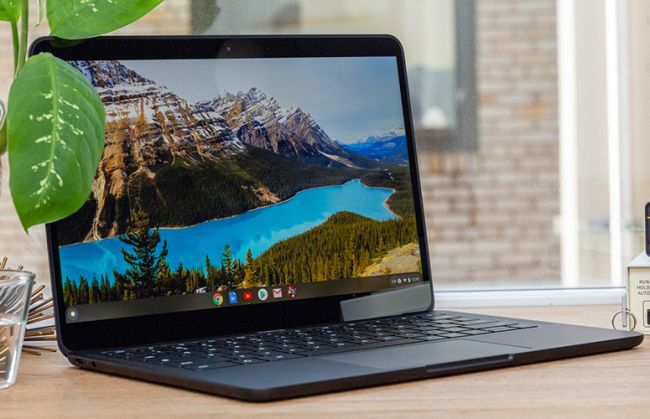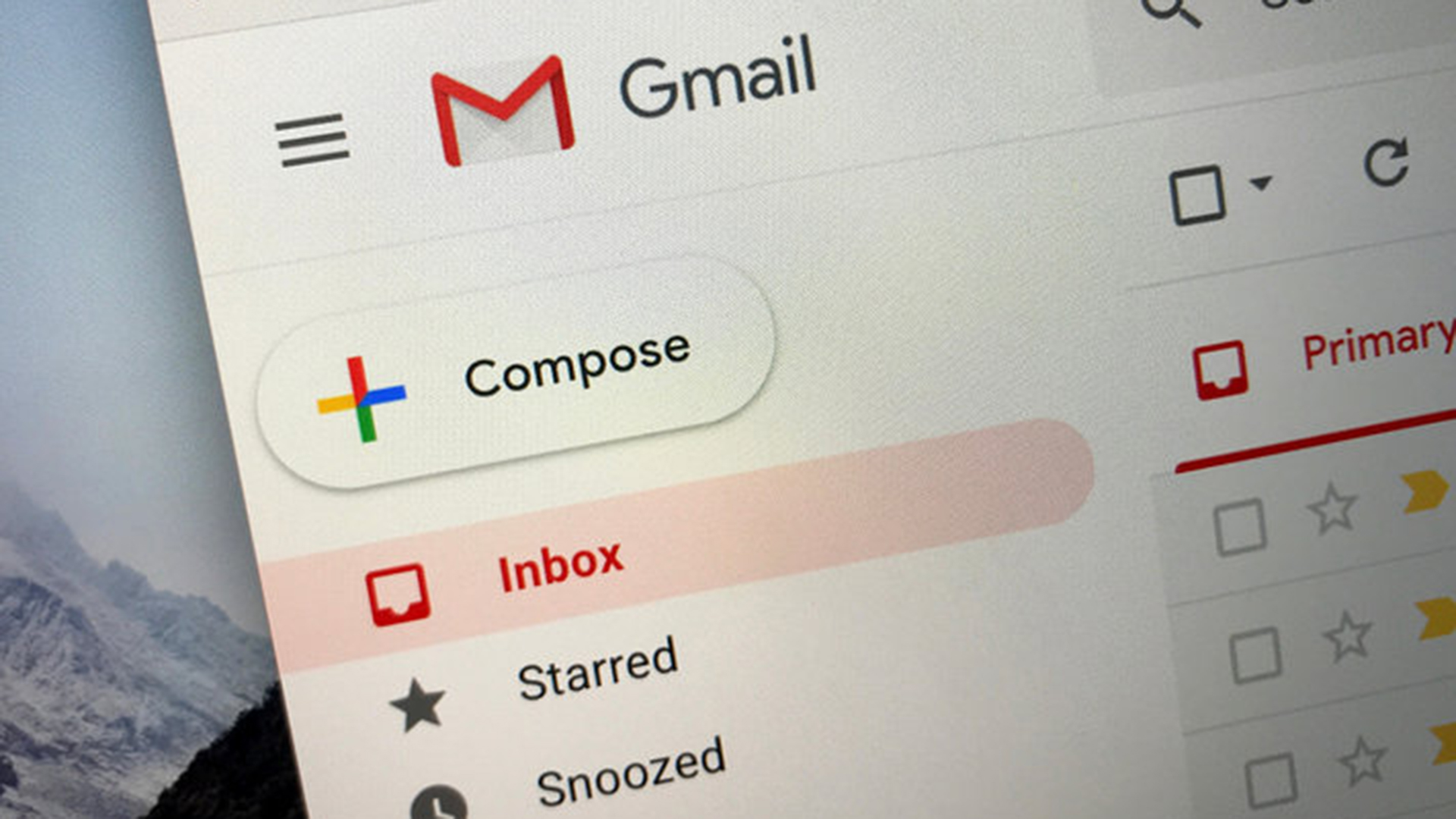My first Chromebook experience made me grumpy — here’s why
It's not me, it's this Chromebook

When I first learned I would finally be reviewing a Chromebook, I was intrigued and excited. I had only seen one up close once before at a friend’s house. It was his nine-year-old daughter’s first laptop, and she loved it. He said, “she thinks it’s a real laptop, we even set her up with an email account so she can email us stuff, play games, and watch her favorite kids shows.”
The fact that he said, “She thinks it’s an actual laptop,” never left me, and so I was inquisitive to see what my own Chromebook experience would be like. Admittedly, some of my more experienced colleagues giggled at my excitement for reasons I wished not to know. I wanted to go in with virgin eyes and with child-like wonderment and curiosity.
Getting ready
The Lenovo ThinkPad C13 Yoga Chromebook arrived, and I stopped everything I was doing to unbox it and get it charged up. I did a little research on which sketch apps I should download to fully experience the stylus that came with the particular 2-in-1 Chromebook I was spending the next few days bonding with.
The Google Play Store always feels like I’m in Candy Land. Many of the apps look exciting, but in my experience with previous Android phones and tablets, it never impresses, and most of the apps are underdeveloped or complete trash. So I was leery of falling back into its abyss and getting lost. I sat there, contemplating which apps I would download, then compiled a list. Finally, I was ready to open up the Chromebook and begin my journey.
Setting up the Chromebook
First off, the Chromebook I reviewed is a sleek 13-inch notebook with an FHD display and solid specs, so I expected an instant boot up, and that’s what I got; it’s always exciting to get what you want; however, things would take a turn for the annoying when I tried setting it up.
Because they are part of the Google ecosystem, Chromebooks require you to sign in to your Google account with your password. You have to type it in to start the process, which I found disappointing. Being a long-time member of the Google-verse, I’m used to simply receiving a message on my phone that asks me if I am signing in on a new device.
But nope, I had to sit there and try to remember a password I hadn’t changed in forever. It turns out, I had forgotten it.. Then I had to battle with the decision of either creating a new account just for this Chromebook or changing my password. Even Microsoft moved to a quicker authentication format with the help of a phone app, why is this not a thing for Google?
Stay in the know with Laptop Mag
Get our in-depth reviews, helpful tips, great deals, and the biggest news stories delivered to your inbox.
Thoroughly frustrated, I changed my password then went into my phone apps to make sure everything the change was made across the board (it wasn’t). And finally, I had to make sure my old tablet was all good too. All told, it was an hour-long process, and I was annoyed. I just wanted to play with this new Chromebook, but nope, Google didn’t want me to be happy. They wanted me to dive deeper into the angrily into the abyss.
Once the Chromebook was finally set up, I put it aside because I had wasted nearly an hour and a half. I had work to do, so I shuffled over to my work area and got on my PC to work in Google Docs, which made me even angrier.
Downloading apps
Later that night, I went back into the Chromebook, downloaded three sketch apps recommended on a few sites. To my chagrin, the first two were awful. The last one was usable, so I got the pen out, took notes, and played a little with it. I scribbled some notes and doodled a bit. However, with such a great stylus and the Chromebook actually functioning very well in tablet mode, I pondered why better apps hadn’t yet been developed? Maybe Google needs to reign in devs as Apple does.
Over the next few days, I used the Chromebook to check emails, watch some YouTube, edit a couple of docs in the Google Suite, and played with a coloring book app. I downloaded a Star Trek game from the Play Store, but it was terrible
I wanted to see how the Chromebook handled editing photos and videos so I used Pixlr for photos and PowerDirector for video. Pixlr was fine for simple cropping, light color adjustments, and other basic tasks, but my iPhone has better photo editing options. PowerDirector was anything but powerful, and again, my iPhone does a better job with its native app than CyberLink’s creation.
Here I was with this all-aluminum gorgeous, sleek Chromebook, but outside of Google Suite, most of the apps available are poor. Either the user interfaces are messy mindless maze-like misadventures, or they didn’t do what they’re supposed to do. I stayed in my Google Suite lane and worked on documents for a whole day, and the unit was fine for that. Since it was lightweight and tiny, I could carry it everywhere quickly. But I honestly couldn’t get all my work done because though I do a lot of writing I also edit a lot of photos and video and none of the apps I found in the play store supplied the precise tools I need and use to do so.
The good, the bad, the not so ugly
My Chromebook has a crisp, colorful display, so I watched a movie with it in tent mode; however, the audio left a lot to desire, but it would do. It would make an outstanding laptop for a camping trip where I lied to my family about not checking in with my job to see what's happening at the office. Everything I could achieve with this Chromebook I could do with my iPhone and, in most cases, do it better, which angered me even more. I was catching myself peeking at the Chromebook with disdain.
I think the lightweight Google OS is fine. It’s great for elementary schools, some remote classroom work, light office work, and emails. But if Google means to compete with the likes of Apple and Microsoft, they’ve got a lot of work to do. I’ve always disliked the idea of having to rely on the cloud to store my work or software. Leaving everything in the cloud secretly disturbs me; it’s the blind faith of it all as I sit here reading the news about another data breach.
In defense of Chromebooks, what Google does get right, like email, Google Docs, Google Meet, heck, the entire Google Suite. Microsoft and Apple could learn a few things from Google. However, the company has to tighten up the ship, clean out the Play Store, and hold developers accountable for the quality of their apps.
Final Thoughts
Would I buy a Chromebook? Maybe to leave in a spare bedroom whenever guests come over and want to check their emails and social media. I wouldn’t even give one to my kids because I love them. In fact, earlier this year, my 11-year-old needed a new laptop for remote learning. The first thing out of her mouth was, “please make it a PC, Chromebooks are annoying, and you can’t do anything with them.” Chromebooks may be affordable, but you have to spend money to make money, and until Google cleans up its ecosystem, its laptops will continue to be perceived by some as toys.

Mark has spent 20 years headlining comedy shows around the country and made appearances on ABC, MTV, Comedy Central, Howard Stern, Food Network, and Sirius XM Radio. He has written about every topic imaginable, from dating, family, politics, social issues, and tech. He wrote his first tech articles for the now-defunct Dads On Tech 10 years ago, and his passion for combining humor and tech has grown under the tutelage of the Laptop Mag team. His penchant for tearing things down and rebuilding them did not make Mark popular at home, however, when he got his hands on the legendary Commodore 64, his passion for all things tech deepened. These days, when he is not filming, editing footage, tinkering with cameras and laptops, or on stage, he can be found at his desk snacking, writing about everything tech, new jokes, or scripts he dreams of filming.
